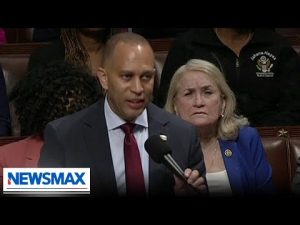In the dazzling yet often murky world of celebrity, the trial of Sean “Diddy” Combs has captivated public attention. The allegations laid bare in a Manhattan federal courthouse paint a rather grim tale involving power, wealth, and alleged exploitation. As jurors deliberate, they find themselves in the twelfth hour, grappling with harrowing testimonies and sordid details. One would think that with all of Diddy’s fame and fortune, he’d have enough on his plate without needing to partake in these so-called “freak-offs.”
The trial centers around allegations of sex trafficking, where the prosecution argues Combs used his celebrity status to run an illicit operation involving coerced women and drug-fueled parties. At the heart of this is Diddy’s ex-girlfriend, Cassie Ventura. She claimed on the stand that these “freak-offs” became not just a bizarre part of her life, but practically her job description. One must pause here to ponder the irony; what should have been an ordinary romantic relationship turned into a full-blown criminal case.
Cassie provided some of the trial’s most powerful testimony. Her accounts include a 2016 incident captured on Los Angeles hotel surveillance, which shows a particularly brutal altercation. The jurors reviewed her testimony and an Instagram post she made in 2024, claiming domestic violence as the catalyst. The defense, sticking to its guns, insists these encounters were all consensual and that the allegations against Diddy are blown out of proportion. Perhaps they believe that redefining such encounters could change the game, though jurors and the public might beg to differ.
The prosecution’s case is supported by testimonies from a male escort and dozens of others. The escort recounted being paid substantial sums to engage in activities with Cassie while Diddy watched, raising questions about the supposed consensual nature of these arrangements. The escort even witnessed instances of abuse, adding layers to the complex narrative of coercion versus consent. While Diddy’s team dismisses these tales as fabrications, the jury will need to consider whether this was a mere exaggeration or a true depiction of misconduct.
As the world watches, one can’t help but wonder if the jury will deliver a verdict that reflects justice or if appealable issues will muddy the waters further. The defense’s claims that evidence presented is irrelevant to Diddy’s charge might hold some weight in appeal, but let’s face it, they’re not here to decide if Diddy lived a saintly life. They’re deliberating whether his actions crossed legal boundaries into the territory of criminality. Whatever the outcome, this trial serves as a stark reminder of how deeply privilege and power can complicate a search for the truth.







